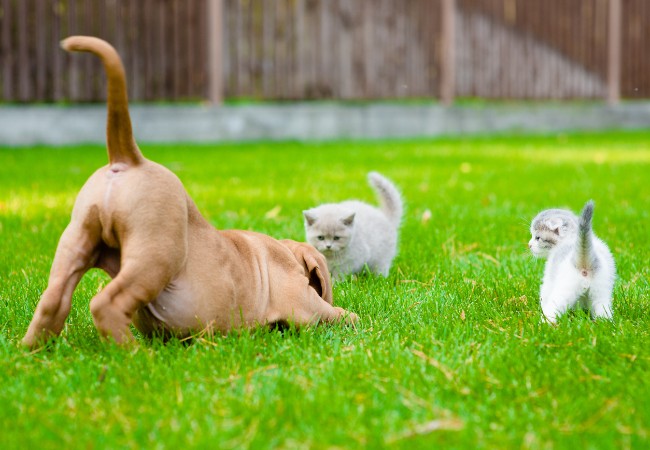Natural Support for Dogs with Salmonella in 2025: Vet’s Guide to Prevention & Care 🐶🛡️

In this article
Natural Support for Dogs with Salmonella in 2025: Vet’s Guide to Prevention & Care 🐶🛡️
By Dr. Duncan Houston BVSc
🔍 What Is Salmonella in Dogs?
Salmonellosis is a bacterial infection caused by Salmonella species. Dogs can be asymptomatic carriers or develop symptoms like vomiting, diarrhea (sometimes bloody), fever, and lethargy. Puppies, seniors, and immunocompromised pets are at higher risk.
📦 Common Sources of Infection
- Raw or undercooked meats, eggs, unpasteurized dairy
- Contaminated surfaces, bowls, or water
- Contact with infected wildlife, reptiles, other pets
🩺 Recognizing the Signs
- Diarrhea—often watery or bloody
- Vomiting, possibly with bile or blood
- Dehydration, lethargy, reduced appetite
- Fever and abdominal discomfort
If your pup shows any of these signs—especially blood or fever—contact your vet promptly.
🛡️ Natural Prevention Strategies
- ✅ Thoroughly cook meats and eggs to safe temperatures
- 🧼 Wash food/water bowls and prep areas regularly with hot soapy water
- 🚫 Avoid raw diets unless veterinarian-supervised; understand contamination risks
- 💧 Provide clean water and prevent scavenging outdoors
🏡 Home Care & Support
- 💧 Ensure hydration—offer water or diluted broth
- 🥣 Feed bland meals like chicken and rice or pumpkin porridge
- 🦠 Use canine-specific probiotics to restore gut balance
- 🛁 Maintain hygiene—clean bowls, manage stool, wash hands after handling pets or feces
⚕️ Veterinary Treatment
Mild cases may resolve with supportive care, but if symptoms persist or worsen, veterinary steps include:
- IV or subcutaneous fluids for dehydration
- Anti-nausea meds and fever management
- Targeted antibiotics for severe or systemic infections
- Fecal cultures, bloodwork, and close monitoring for up to 3 weeks
👶 Dog as a Carrier
Many dogs shed Salmonella in stool without signs. Persistent cleaning, isolation of symptomatic pets, and veterinary testing help protect humans and other animals at home.
🧾 Final Thoughts
Salmonella can be serious, but simple natural steps—proper cooking, hygiene, hydration, and using probiotics—dramatically reduce risks. Monitor your dog closely and seek veterinary attention if symptoms arise. Balanced, safe diets and clean environments are your best protection 🐾❤️.






